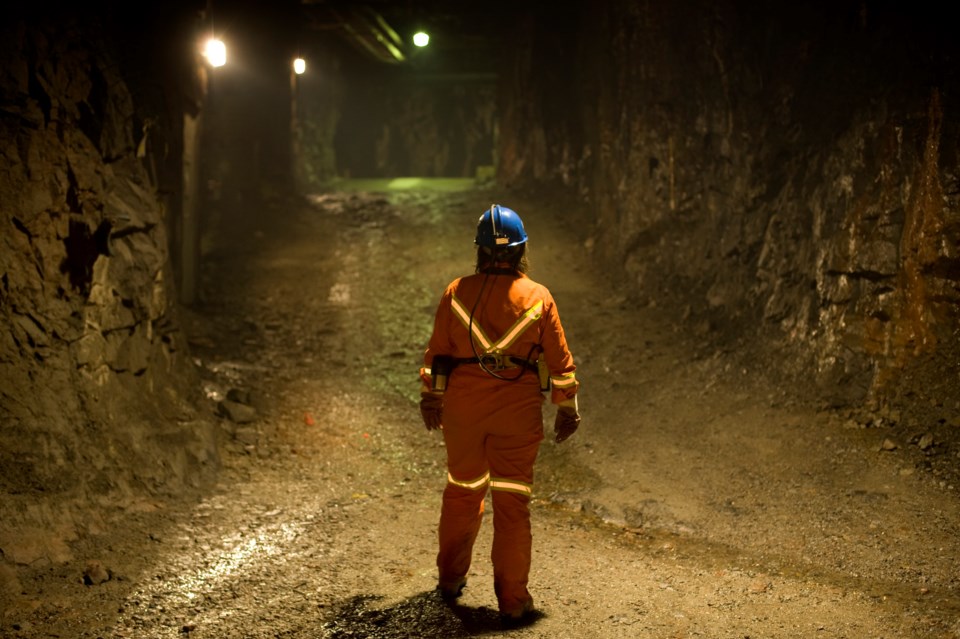British Columbia, like much of the world, is facing unprecedented economic uncertainty and volatility.
The whipsaw of U.S. tariffs on Canada’s auto sector and steel, aluminum and lumber exports poses an extraordinary threat to our economy. Meanwhile, the global trading system that has underpinned international commerce since the Second World War is in disarray. Trade wars are a new reality.
This all comes at a time when our provincial economy is already slowing; consumers and businesses are dealing with rising costs, and we face a provincial deficit of more than $11 billion with mounting debt.
These developments threaten the essentials B.C.’s economy provides — well-paying jobs, stable communities and vital public services like health care, education and housing. British Columbians are worried.
To secure our future, Canada and B.C. must take bold steps to assert our economic sovereignty and ensure long-term prosperity.
One of the most powerful tools we have at our disposal is mining.
Mining has the potential to drive a new wave of economic growth — creating jobs, strengthening communities and generating revenue for government services.
Mining is also a powerful lever to advance economic reconciliation through First Nations partnerships and participation, including the potential for equity ownership.
Today, British Columbia is home to 18 operating mines and two world-class smelters, producing a range of vital critical minerals, precious metals, and steelmaking coal — all essential inputs for technologies such as EV batteries, smartphones, MRI scanners, wind turbines and jet engines.
The sector has an annual economic impact of $18 billion, supporting more than 35,000 jobs and generating over $3 billion in tax revenue for government. Nearly 4,000 small, medium and Indigenous-owned businesses support the mining sector and local economies in every corner of the province.
But there’s more room for growth. B.C. has vast mineral reserves that could deliver a staggering $90 billion in near-term economic activity.
Independent analysis prepared for the Mining Association of British Columbia identifies 27 new mines or mine extensions across B.C. — 18 are critical mineral projects, six are precious metals and three are steelmaking coal.
According to the study, construction of these projects alone represents $41 billion in new investment, $27 billion in labour income and more than $12 billion in tax revenues. This provides a road map for economic growth and stability, while providing materials essential for clean energy, high-tech manufacturing and national security.
The No. 1 barrier to unlocking this potential is permitting delays. Currently, mine approvals can take upwards of 10 to 12 years. This puts B.C. at a disadvantage in attracting investment needed to realize economic and community benefits that come with mining.
We must do better. We must modernize and expedite the permitting process for critical minerals and other mining projects. Reducing permitting timelines dramatically to a few years — while maintaining world-class environmental protection — can be a competitive advantage for B.C. in the global race to provide secure mineral and metal supplies.
And with a new government in Ottawa, B.C. and the federal governments should now align permitting and authorization agencies and processes for regionally significant projects, including sorting out which government is the “best-placed regulator” in areas of overlap. Here, Prime Minister Mark Carney’s election commitment is promising: ‘One process, one project’ must be the rule going forward.
Both governments must also ensure First Nations have the governance, administrative and technical capacity to participate — on their terms — in reviews of major mining projects. This will foster strong partnerships, advance economic reconciliation and enable more timely permitting. Also important is getting federal and provincial support out the door to backstop First Nations co-ownership and equity in mining projects and related infrastructure.
B.C. requires federal co-investment to advance priority transmission projects needed to electrify new mining and critical mineral projects throughout our province. Cost effective electricity is crucial for mining development and maintaining our industry’s greenhouse gas emissions among the lowest in the world.
By addressing these constraints, B.C. will attract the investment needed to grow the province’s mining industry, secure supply chains, advance economic reconciliation with First Nations and stabilize our communities.
Michael Goehring is president and CEO of the Mining Association of British Columbia.



